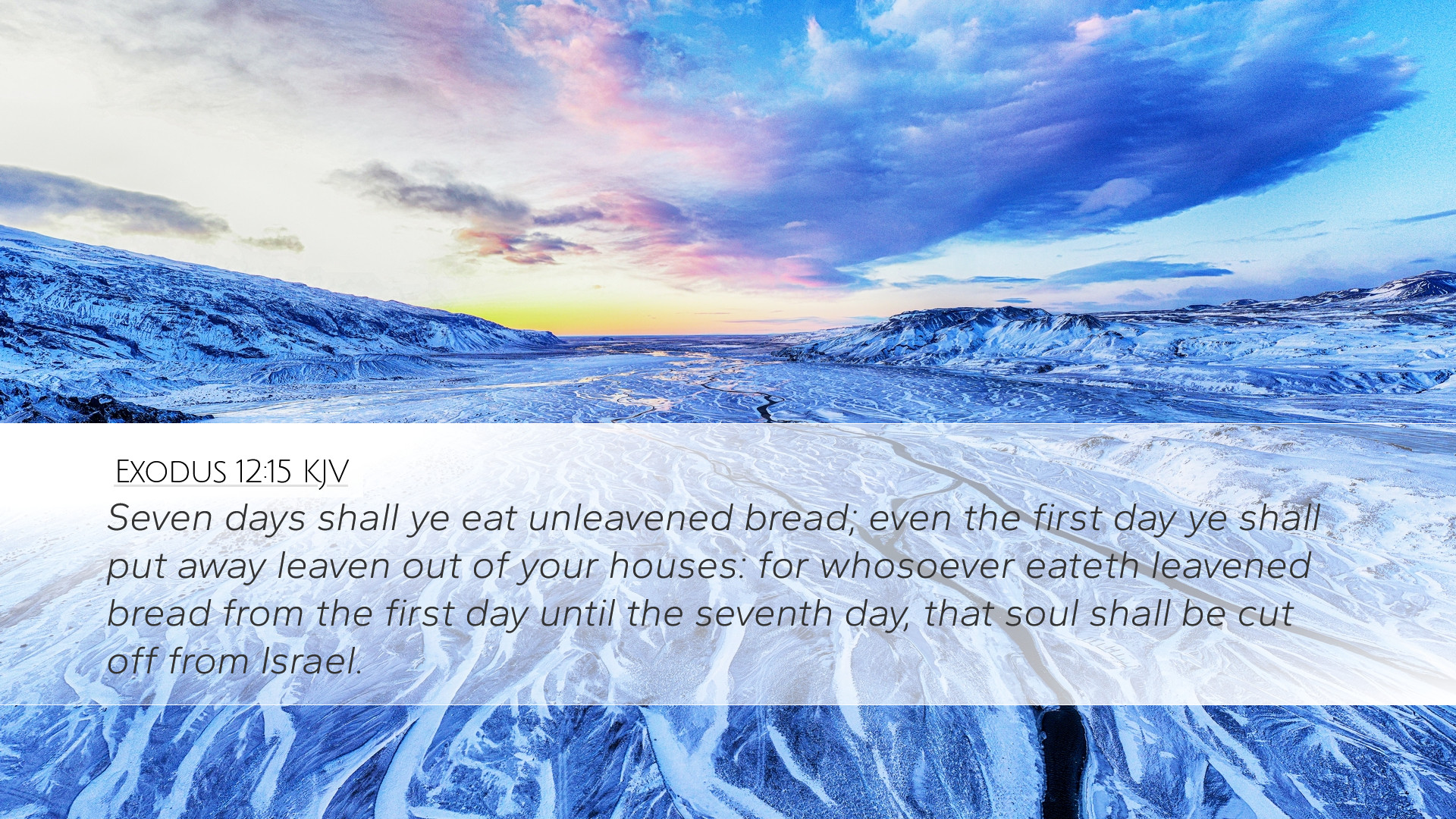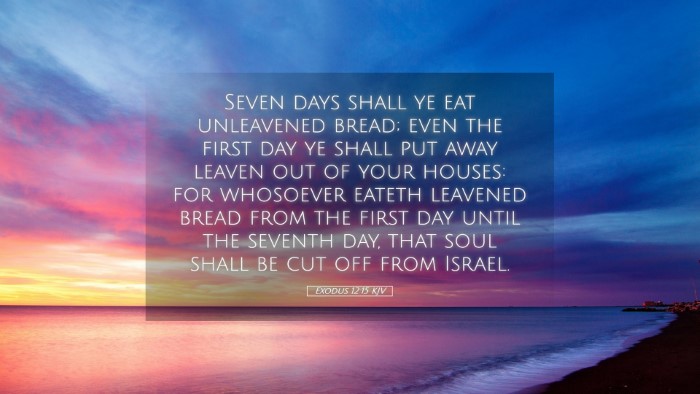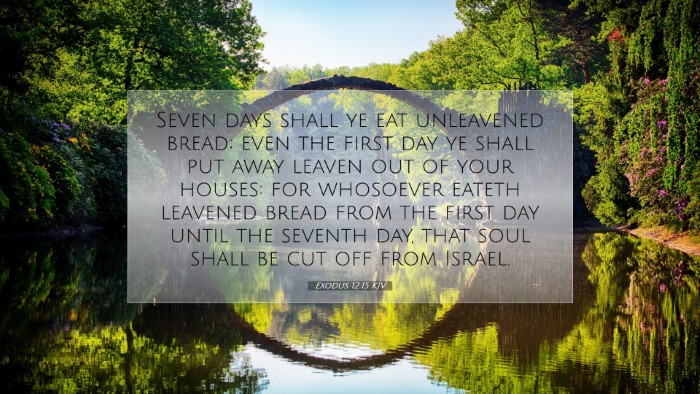Exodus 12:15 Commentary
Exodus 12:15 (ESV): "Seven days you shall eat unleavened bread. On the first day you shall remove leaven out of your houses, for if anyone eats what is leavened, from the first day until the seventh day, that person shall be cut off from Israel."
Introduction
The command in Exodus 12:15 is pivotal in the context of the Passover and the Exodus narrative. It emphasizes the themes of obedience, purity, and separation from sin. Commentaries from respected sources such as Matthew Henry, Albert Barnes, and Adam Clarke provide deep insights into the implications of this verse for the Israelite community and its theological significance.
Contextual Analysis
This verse occurs within the broader narrative of the Passover, a critical event for the Israelite people that marked their deliverance from slavery in Egypt. The command to remove leaven from their houses serves a dual purpose: it is both a practical step in preparation for the Passover feast and a symbolic act representing the removal of sin and corruption.
Matthew Henry's Commentary
Henry notes that 'leaven' in Scripture often symbolizes sin. In this context, the directive to remove leaven illustrates the necessity of holiness and purity among God’s people. He expounds that just as leaven spreads, so does sin corrupt the community. Therefore, the command serves as a reminder of the need for spiritual vigilance and the rejection of anything that might contaminate their relationship with God.
Albert Barnes' Insight
Barnes elaborates on the cultural significance of leaven in ancient Israel. In Jewish tradition, leaven was not merely an ingredient in bread; it represented moral and ethical decay. He emphasizes that this period of unleavened bread is a time of reflection and purification, where not only physical leaven but also spiritual leaven (sin) must be addressed. He argues that the cutting off of an individual from the community for transgressing this commandment underscores the seriousness with which God regards communal holiness.
Adam Clarke’s Exegesis
Clarke discusses the implications of the phrase "cut off from Israel." He interprets this as a severe judgment, indicating that those who partake of leaven during this holy time would be excommunicated, reflecting the gravity of failing to adhere to God's commandments. He connects this to the broader covenant relationship between God and Israel, indicating that obedience to God's laws is critical for maintaining one's status within the covenant community. Clarke also highlights the significance of the seven-day period, linking it to completeness and perfection in biblical numerology.
Theological Implications
The removal of leaven serves as a theological metaphor for sanctification. For pastors and theologians, this text speaks to the necessity of preaching holiness and the transformative work of God in believers’ lives. The act of taking out leaven can be seen as an ongoing process reflective of the believer's journey in faith, where continuous self-examination and repentance are integral to one’s spiritual walk.
Symbolism of Leaven
- Leaven as Sin: As noted by Henry and Clarke, leaven symbolizes sin. This reinforces the call to holiness that pervades Scripture.
- Purity and Community: The collective action of removing leaven underscores the importance of communal purity and collective responsibility in the body of believers.
- Historical Remembrance: The observance of unleavened bread serves as a memorial to God’s faithfulness in deliverance, making it both a historical and future-oriented observance.
Practical Applications for Ministry
For pastors and church leaders, Exodus 12:15 presents several practical applications:
- Teaching on Purity: This verse can be a springboard for sermons about the importance of spiritual purity and the regular discipline of evaluating one’s life against the standards of Scripture.
- Encouraging Community Accountability: Congregations can benefit from systems of accountability that encourage believers to support one another in pursuing holiness and dealing with sin.
- Celebrating Passover in Context: For those in Christian traditions that observe the Passover or Communion, this verse can enhance understanding of the sacramental nature of these acts, reinforcing their connections to Jesus’ atoning sacrifice.
Conclusion
Exodus 12:15 provides a wealth of insight that transcends its historical context. Through the combined wisdom of Matthew Henry, Albert Barnes, and Adam Clarke, we glean valuable theological and practical lessons. The removal of leaven teaches us about the necessity of ongoing sanctification, the seriousness of communal purity, and the profound nature of our covenant relationship with God. As the church reflects on this mandate, may it encourage deeper commitment to holiness and vigilance against the subtle encroachments of sin in both individual lives and the community of faith.


